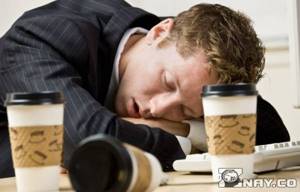Author: Oleg Maltsev
Coffee has a pleasant taste, gives you a feeling of cheerfulness and slightly improves your mood. Many studies confirm that this drink, when consumed wisely, will reduce the risk of developing diabetes and improve liver health. Despite its excellent taste and benefits, coffee has several disadvantages. One of the main ones is the risk of developing addiction .
How difficult is it to give up coffee?
Medical research has been conducted on the topic of coffee addiction for quite some time. Today, most narcologists are inclined to believe that the caffeine it contains can actually cause addiction in most people, and not so much physical as psychological.
A term was even introduced to denote this type of addiction - caffeineism. It is officially included in the international classification of diseases.
It’s worth immediately reassuring coffee lovers with the fact that great willpower is not required to give up coffee. Caffeine is a relatively weak stimulant.
In most cases, a person who drinks this drink moderately, even for several years, can completely give it up without contacting a narcologist.
Some of the most pronounced signs of caffeineism include:
- Bad mood and difficulty concentrating without another dose of coffee;
- Avoid other drinks. Many people easily alternate coffee with tea. They drink coffee in the morning to stay alert, and in the afternoon they prefer aromatic tea. This is a good habit, as tea contains theine, which stimulates more gently. But if coffee has replaced all drinks in a person’s diet, then this is a reason to think;
- Increased irritability and insomnia.
Is it time to call it quits?
Avid coffee drinkers sometimes don’t see a problem with their addiction to this drink. Finding out if you have a coffee addiction is very easy. If the desire to drink another portion becomes obsessive and headaches, weakness and irritability occur without doping, you should give up coffee, replacing it with other drinks.
Addiction is dangerous not only in itself, but also because of the impact of shock doses of caffeine on the body. Over time, diseases of the gastrointestinal tract, heart, endocrine and nervous systems develop.
On the other hand, you don’t need to force yourself to completely eliminate coffee from your diet if you don’t have health problems. A couple of cups a day will do more good than harm.
What happens if you suddenly stop drinking coffee?
Those who dare to abruptly give up caffeine may develop withdrawal syndrome, characterized by the following unpleasant aspects:
- Drowsiness . Caffeine inhibits the functioning of adenosine receptors in the brain, which are responsible for relaxation. Therefore, by drinking coffee, a person quickly dispels morning drowsiness. When you refuse an invigorating drink, it is more difficult for the brain to get out of the “relaxed state” after sleep, since it is accustomed to the external stimulant in the form of caffeine. At the same time, reduced performance may persist throughout the day;
- Migraine . Those with low blood pressure will have to face this problem. Thanks to caffeine, blood vessels narrow slightly, which simultaneously leads to an increase in blood pressure and a slowdown in cerebral blood flow. When caffeine does not enter the body for a long time, blood circulation in the brain increases and the blood vessels dilate again. This leads to throbbing or pressing pain in the head;
- Decreased concentration;
- Bad mood . This is because caffeine enhances the release of dopamine. Such regular stimulation does not go unnoticed. After its abrupt disappearance, some people experience an inexplicable feeling of anxiety and depression;
- Increased appetite . This invigorating drink contains a lot of saturated amino acids and other substances that suppress hunger. This is why coffee lovers are less susceptible to the desire to quickly snack on something.

All of the problems listed above should go away completely 3 weeks after quitting coffee.
Psychological corrective way to quit drinking coffee
The method consists of a psychological attitude towards giving up coffee, creating motivation and separating the drink itself from the social and personal rituals that it helps to observe.
Who is it suitable for?
Those who intend to quit drinking coffee consciously and completely, as well as those who have decided to get rid of psychological coffee addiction.
What do you need?
- Motivation . Explain to yourself why you need to give up coffee and have a clear idea of the benefits that can be expected as a result.
- Identifying rituals or needs that replace coffee and developing new behavioral patterns. For example, do you need a morning cup to cheer you up? Half an hour of energetic exercise and a contrast shower will give you a boost of energy. Is coffee a reason for you to chat with a friend? Freshly squeezed juice or hot cocoa is an equally pleasant accompaniment to your meetings.
- Forming new habits . New patterns of behavior should gradually take root, becoming familiar and natural to you. This will require time and control of behavior so as not to fall back on old habits.
pros
- Guarantees good, stable and long-term results.
- Helps to streamline not only your diet, but also your habits.
Minuses
- It requires a serious approach and some psychological effort.
If you decide to give up coffee for a long time or forever, then several practical recommendations will help you with this.
- It takes from 21 to 66 days to form a new habit, depending on the strength of the previous attitude. Hold on for three weeks, it will get easier.
- You can give relief if it is very difficult. A cup of freshly brewed ground decaffeinated coffee will help you cope with momentary weakness. You can replace it with a few squares of dark chocolate.
- Don’t try to replace one addiction with another, for example, switching from coffee to constant drinking of strong black tea. Any addiction worsens the quality of life, so part with it without regret.
Tips for overcoming caffeine addiction
There are several effective tips to help you overcome your coffee addiction:
- Smoothly reduce the dose . Don't suddenly stop drinking coffee. In this case, the withdrawal syndrome will be more severe. It's better to do it gradually. For example, a person is used to drinking 5 cups of an invigorating drink. In this case, every week he reduces the amount of coffee he drinks by one cup. When a person reaches 1 cup a day, then for the last month you can drink coffee every other day, then once a week, and eventually give it up altogether;
- Consider the amount of caffeine . Espresso contains about 50 mg of caffeine, while instant coffee contains 40 mg. Therefore, you can first switch from espresso to instant coffee;
- Start giving up coffee from the first day of your vacation. Being outside the work environment makes it easier for a person to endure withdrawal symptoms in the form of drowsiness and low mood;
- Replace coffee with delicious food or sweets . Instead of the usual cup of an invigorating drink, you can treat yourself to sweets or chocolate;
- Walk or jog more often . Active movement coupled with fresh air will help the body cope with the lack of caffeine much better.

An extreme way to quit drinking coffee
Its essence is simple - just stop drinking the drink. Do not look for a replacement for him or try to find additional motivation. You just don't drink coffee anymore.
Who is it suitable for?
Strong-willed and decisive people who are not accustomed to giving in to difficulties.
Advantages of the method
- A pleasant feeling of victory over oneself
- Easy to use.
Minuses
- Drowsiness and lethargy may continue for several days.
- Instability of results without additional motivation. If you haven't explained to yourself why you need to quit drinking coffee, then there's a good chance you'll start drinking it again.
Replacing coffee with another drink
The most optimal method of giving up coffee is to replace it with another drink :
- Chicory . The best option. Its taste is only vaguely reminiscent of coffee, so avid coffee lovers are better off purchasing special brands with a flavor, such as cappuccino. Chicory also has a positive effect on the nervous system;
- Green tea . It has less caffeine than black tea. It is moderately invigorating, quenches thirst well and has a pleasant taste;
- Cocoa . Everyone's favorite drink from childhood, with minimal caffeine;
- Decaffeinated coffee . If you really don’t have the willpower to give up your favorite taste in the morning, then you’ll have to buy expensive decaffeinated coffee. As you can guess from the name, it contains virtually no caffeine, and its aroma and taste are indistinguishable from regular coffee.

A replacement way to quit drinking coffee
It consists of replacing coffee with other drinks. What replacement options can you offer?
- Decaffeinated coffee . For those who are not ready to part with their taste habits.
- Green tea . A good replacement for coffee with another energy drink that is gentler. Green tea invigorates due to its high tannin content, but its stimulating effect is milder than that of coffee. As a replacement, choose natural, non-bagged green teas, without flavorings or additives.
- Herb tea . Depending on the desired effect, you can choose a medicinal or invigorating herbal mixture. Chamomile, mint, and lemon balm have a relaxing and calming effect. Paraguayan herbal tea mate tones and invigorates.
- Cocoa . It has a pronounced chocolate taste, saturates and tones well, but has a high calorie content.
Who is it suitable for?
Those who want to improve their diet, but not give up natural stimulants, by replacing coffee with less radical options.
Advantages of the method
- Allows you to painlessly replace coffee consumption with other drinks.
- Provides a variety of taste sensations.
Minuses
- Not suitable for those who must avoid any stimulation of the nervous system. For example, expectant mothers. They are only recommended to take soothing herbal teas.
Who quit drinking coffee: what is the effect?
If a person has found the courage to last without coffee for at least a month , then he can observe positive changes in the body :
- Sound sleep appears . Some studies show that caffeine can affect brain function even 6 hours after consumption. Therefore, drinking coffee in the early evening can lead to restless sleep or difficulty falling asleep. Complete exclusion of coffee from the diet is the path to healthy and sound sleep;
- Skin condition improves . Caffeine impairs the absorption of some beneficial microelements needed by the skin;
- The emotional background is normalized . The energizing effect of caffeine is a double-edged sword. On the one hand, coffee will indeed provide a temporary mood boost. But at the same time, many people experience increased nervous excitability, they react more sharply to stressful situations and are more likely to quarrel with a colleague or household member. If you exclude coffee from your diet, your mood swings will not be as severe.
You don't have to completely give up your favorite invigorating drink. It is enough to observe the measure and use it only in the morning or a couple of times a week. If a person decides to give up coffee, then it is recommended to gradually reduce the number of cups drunk per day, simultaneously replacing it with chicory or green tea.

Psychological method to quit drinking coffee
Caffeine is an analogue of a drug. From a psychological point of view, a coffee addict suffers from addiction. It is not easy to cope with it, but it is possible if you find other means of activating nervous activity.
What could it be:
- Workout in the morning: yoga, exercises, running.
- Cold and hot shower.
- Listening to your favorite music, dancing.
- Interesting activity. Consider changing your job.
- A balanced, healthy diet rich in vitamins and proteins.
- Indoor air humidification and ventilation. Walks.
"Rospechat" explained the refusal of kiosks

Photo: Ekaterina Kuzmina / RBC
The Rospechat press kiosks chain is closing its retail business due to unfavorable economic conditions and a steady decline in interest in “non-digital” media. A representative of the Rospechat agency told RBC about this.
“In order to preserve the jobs and salaries of sellers of retail newspaper and magazine products, most of whom are of retirement age, the company’s management decided to transfer all non-stationary retail facilities (kiosks) to the operational management of specialized operators,” Rospechat reported.
The company noted that when choosing an operator, it took into account its readiness to maintain social guarantees for staff, as well as to ensure the delivery of printed products to consumers. Over the past year and a half, Rospechat has transferred 1,180 kiosks, which previously formed a retail distribution network, to third-party commercial organizations for operational management. They added that the agency is now negotiating with its creditors on the timing and procedure for repaying debt obligations.
The mayor's office named the income from Moscow kiosks Business
Speaking about the reasons for abandoning kiosks, a representative of Rospechat said that this line of business had become unprofitable.
“The annual decline in demand for subscription publications was 10–15%, and in the “pandemic” year of 2021, the volume of subscriptions to Rospechat catalogs decreased by 35%,” the company reported.
Read on RBC Pro
How the world is struggling with rising food prices - Bloomberg Golden rules of a private investor in the securities market What the CEO risks if the company violates the requirements of the Labor Code of the Russian Federation Ex-CEO of Zappos Tony Hsieh: running a business is like playing poker
Earlier, Kommersant reported that the Rospechat network of press kiosks got rid of regional retail, citing Alexander Oskin, vice-president of the Union of Printing Industry Enterprises.
About 500 of the 2,000 kiosks (in Krasnodar, Samara, Vladimir) were transferred to the company, which is owned by businessman Sergei Sinitsyn. Some of them, according to him, were purchased, some were rented. Kiosks in Novosibirsk went to Intego-Press, in Nizhny Novgorod and Ryazan - Amo-Press. In St. Petersburg and Irkutsk, the Rospechat network was completely liquidated due to unprofitability.
According to Oskin, leaving the market may be related to the problems that Rospechat encountered last year. The company's debts to publishers for retail sales reached 100 million rubles, and Rospechat promised to repay them through rental payments.
At the same time, Oskin claims that Rospechat’s subscription obligations were paid by Russian Post, and the company itself says that it still has not received part of the funds from Rospechat for the early subscription campaign for the first half of 2021.
According to Oskin, Rospechat controlled about 40% of the subscription market, and after its departure (and earlier the departure of the Interregional Subscription Agency), the entire segment could completely go to Russian Post.
Rospechat was founded in 1994 and was originally owned by Oleg Deripaska. In September 2015, Pavel Ezubov, Deripaska’s long-time partner, whose father is the brother of the businessman’s mother, became the owner of the network.











